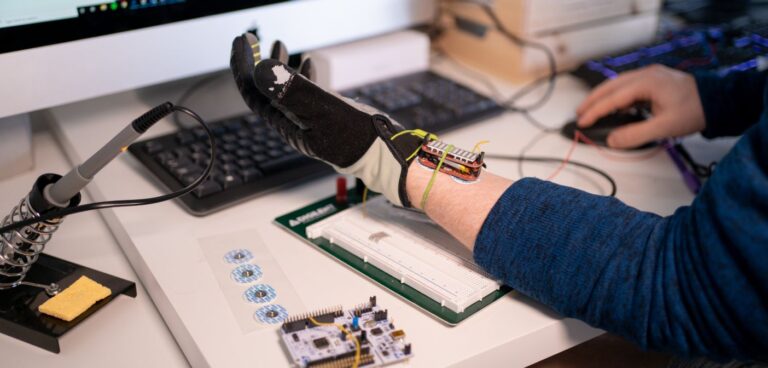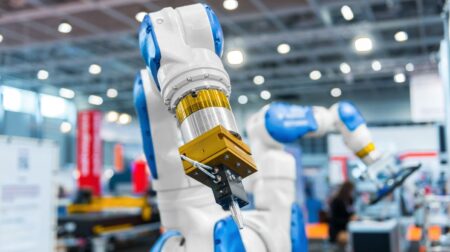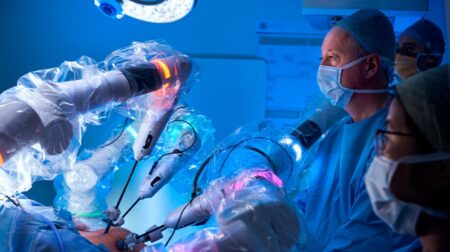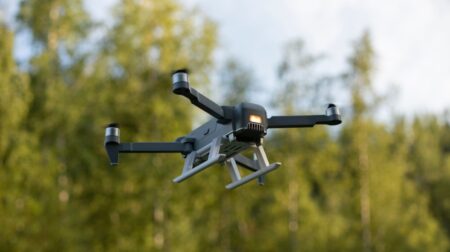Edinburgh-based BioLiberty has developed an AI-powered robotic glove to help people with hand weakness recover muscle grip to better perform everyday tasks.
Designed to help sufferers of multiple sclerosis (MS), motor neurone disease and carpal tunnel syndrome, the glove uses electromyography (EMG) to measure electrical activity in response to a nerve’s stimulation of the muscle, detecting a user’s intention to grip.
The glove then employs an algorithm to convert the intention into force, helping the user to hold an item or apply the necessary pressure to complete an activity. According to the glove’s developer, this could allow users to open jars, pour a cup of tea or drive a vehicle.
BioLiberty co-founder Ross O’Hanlon said he was motivated to start the company after his aunt was diagnosed with MS and began to lose movement. He noticed simple tasks such as changing a TV channel or drinking water were becoming difficult for her.
“Being an engineer, I decided to use technology to tackle these challenges head on with the aim of helping people like my aunt to retain their autonomy.
“As well as those affected by illness, the population continues to age and this places increasing pressure on care services. We wanted to support independent living and healthy ageing by enabling individuals to live more comfortably in their own homes for longer.
“While there are many gadgets on the market that address a specific grip challenge such as tools to help open jars, I wanted an all-encompassing solution to support a range of daily tasks.”
The lightweight glove is the first product from the Scottish start-up, which was founded by O’Hanlon and three other engineering graduates. It has received support from the Edinburgh Business School’s (EBS) Incubator, based at Heriot-Watt University.








